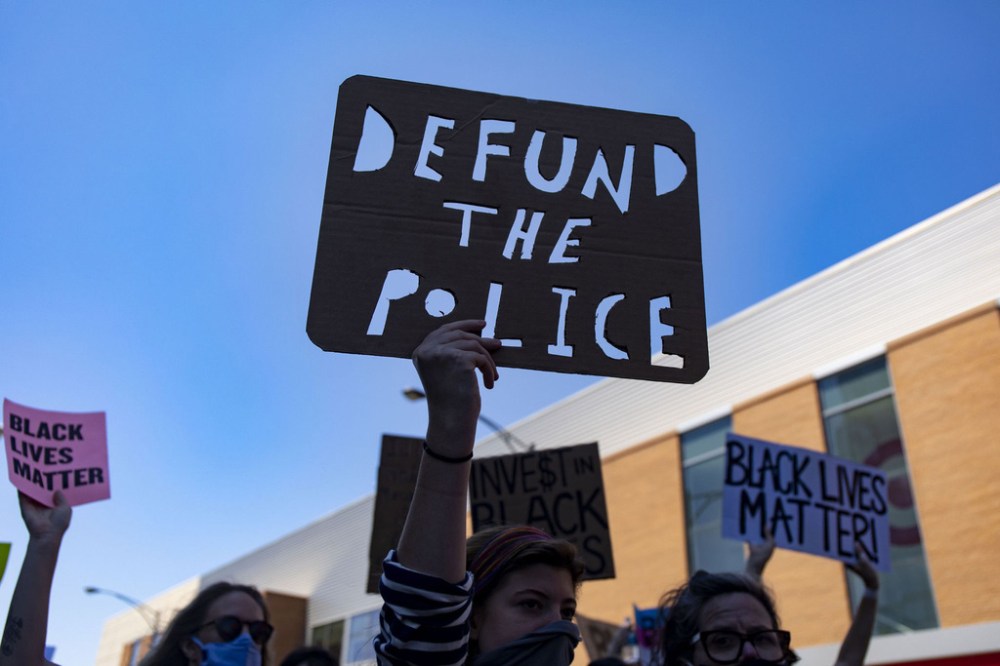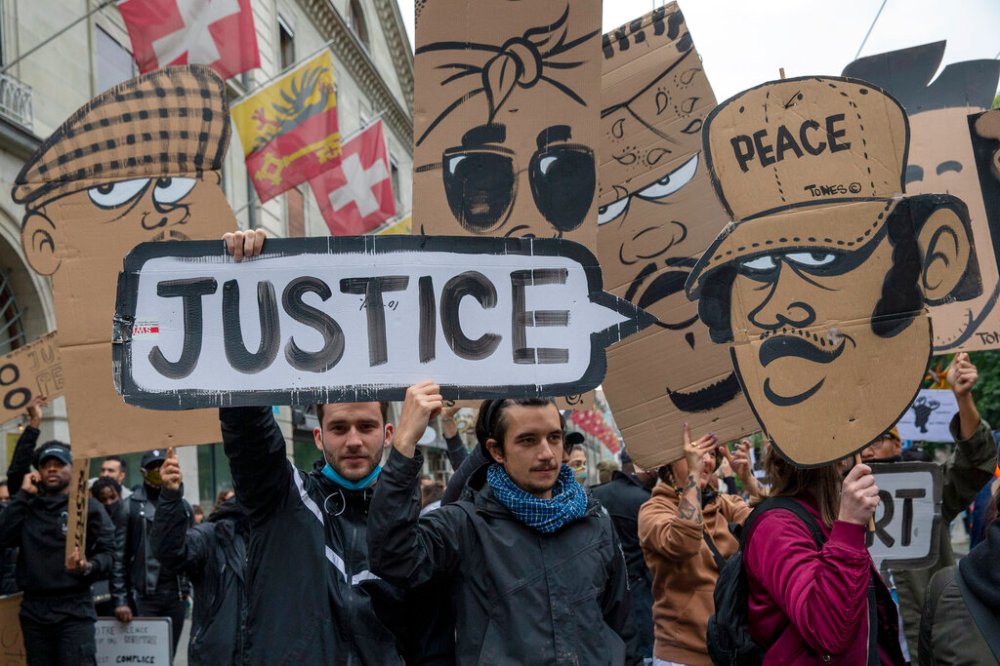What it means to defund the police Movement not about dissolution of law and order, but a reconstituting of how system operates: professor
Read this article for free:
or
Already have an account? Log in here »
To continue reading, please subscribe:
Monthly Digital Subscription
$0 for the first 4 weeks*
- Enjoy unlimited reading on winnipegfreepress.com
- Read the E-Edition, our digital replica newspaper
- Access News Break, our award-winning app
- Play interactive puzzles
*No charge for 4 weeks then price increases to the regular rate of $19.00 plus GST every four weeks. Offer available to new and qualified returning subscribers only. Cancel any time.
Monthly Digital Subscription
$4.75/week*
- Enjoy unlimited reading on winnipegfreepress.com
- Read the E-Edition, our digital replica newspaper
- Access News Break, our award-winning app
- Play interactive puzzles
*Billed as $19 plus GST every four weeks. Cancel any time.
To continue reading, please subscribe:
Add Free Press access to your Brandon Sun subscription for only an additional
$1 for the first 4 weeks*
*Your next subscription payment will increase by $1.00 and you will be charged $16.99 plus GST for four weeks. After four weeks, your payment will increase to $23.99 plus GST every four weeks.
Read unlimited articles for free today:
or
Already have an account? Log in here »
Hey there, time traveller!
This article was published 09/06/2020 (2013 days ago), so information in it may no longer be current.
In recent weeks, a call to defund and disband local police services has surged across Canada and the United States and into the public lexicon, prompting activists, educators and all levels of government to weigh in on what reimagining policing could actually mean.
In order to understand what defunding the police means, University of Winnipeg history professor Paul Lawrie said it’s important to first grasp what it doesn’t mean.
“People have an image that it will result in some sort of anarchic dissolution of any form of law and of order, and that’s not what it is,” Lawrie said Tuesday. “It’s a reconstituting of how policing — and flowing from that the criminal justice system — operates.”

Calls to defund local police forces — steadily reducing their budgets and reinvesting funds in community supports — have been taken up by an increasing chorus of voices as sustained protests against police brutality, anti-Black and anti-Indigenous racism within the police system sweep across Canada and the United States.
“Defunding the police, disbanding the police, is a step towards abolition,” said Syrus Marcus Ware, an artist, researcher and organizer with Black Lives Matter Toronto.
“It’s a way of listening to our communities who are shouting a loud chorus to defund the police, to instead invest that money into community supports and into things that would support people who are in crisis, that would actually help us to resolve conflict when conflict comes up, and that would help us to heal harm when harm happens in our communities.”
Meenakshi Mannoe, criminalization and policing campaigner with Pivot Legal Society in Vancouver, said she’s seen community groups in the city’s Downtown Eastside performing this work over the years in service of communities that experience overcriminalization and “who the police were never seen as safe to.”
Redistributing police funds, Mannoe said, could lead to financial and policy investments in critical systems such as “housing, safe supply, peer support, peer outreach, peer advocacy, access to public space where they’re not being policed, and again transformative justice processes that keep them out of jails and prisons.”
Governments in Canada and the United States have begun publicly discussing what shape police defunding could take. While city councillors pledge to disband police forces or make modest cuts to police budgets, responses among federal leaders such as Prime Minister Trudeau have been more aligned with police reform through increased civilian oversight, the introduction of oft-debated body cameras and banning methods of restraint such as chokeholds.
“Reform assumes that the system is broken and that there are bad actors within the system, and that these measures will rectify that,” Lawrie said of the difference between reforming and defunding. “Defunding is predicated on the notion that the system is working exactly as it has always intended to work, and that is the problem.”
Abolition through defunding and disbanding is important because the current model of policing and prison is “tied up with slavery,” Ware said.
“Reform doesn’t address the inherent initial problems that are why we need to get rid of police and prisons; reform doesn’t address anti-Blackness, it doesn’t address white supremacy,” he said.

The solution is not reform, but rather to steadily cut “bloated” police budgets and reimagine community safety through systems rooted in care and social justice, Ware said.
“Defunding the police would free up resources to go to community supports like community centres, like housing for all, like making sure there is a safe supply of drugs for folks who use drugs. It could go towards having crisis support teams for people who are in emotional crisis or psychiatric distress,” Ware said.
“It could go towards community programs in our school systems that teach children about de-escalation, harm reduction and conflict resolution from a very young age so we can learn ways to de-escalate conflict without relying on the police.”
julia-simone.rutgers@freepress.mb.ca
Twitter: @jsrutgers

Julia-Simone Rutgers is a climate reporter with a focus on environmental issues in Manitoba. Her position is part of a three-year partnership between the Winnipeg Free Press and The Narwhal, funded by the Winnipeg Foundation.
Our newsroom depends on a growing audience of readers to power our journalism. If you are not a paid reader, please consider becoming a subscriber.
Our newsroom depends on its audience of readers to power our journalism. Thank you for your support.








